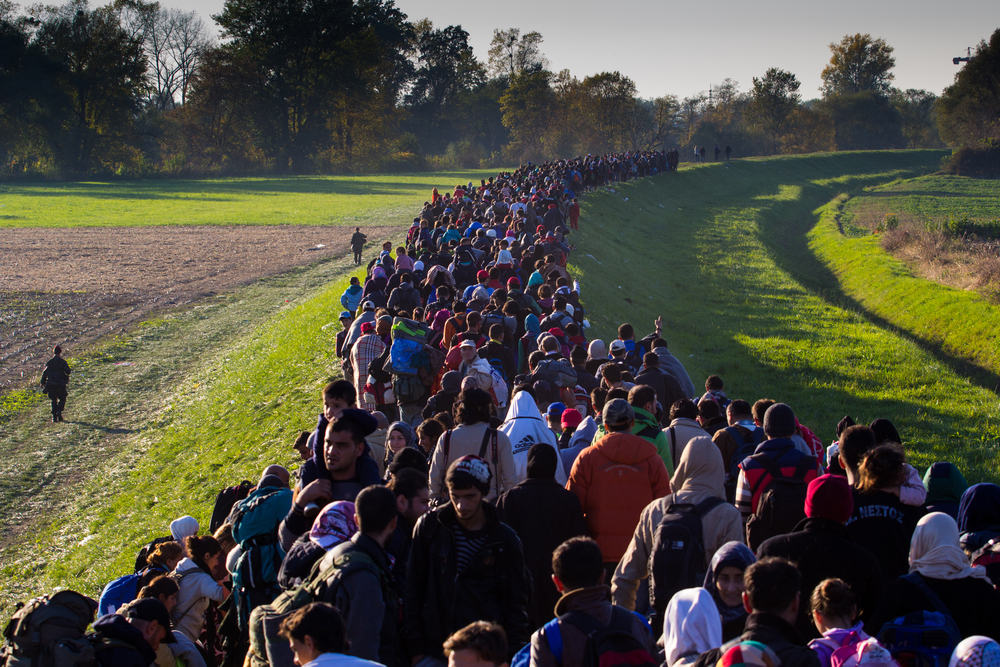Germany is rapidly increasing naturalizations, with 200,000 migrants becoming German citizens in 2023, according to the Federal Statistical Office.
Of those 200,000, by far the largest group was made up of Syrians, with 75,485 becoming citizens in 2023. In second place were migrants from Turkey, who received 10,735 German passports, while Iraq came in third place with 10,710 new citizens.
Both the Alternative for Germany (AfD) and the Christian Democrats (CDU) slammed the news after the statistics were published. However, the AfD, while attacking the current government’s immigration policy, also noted that many of the migrants being naturalized are Syrians, who were invited in by former CDU Chancellor Angela Merkel in 2015 and 2016.
“That is more people than the population of Potsdam, Saarbrücken or Leverkusen: 200,100 people received German citizenship last year. The number of naturalizations has thus reached a historic record level, while the traffic-light coalition and the CDU want to fool us into believing that migration is being limited. In reality, the record number is the result of the mass immigration of Syrians between 2014 and 2016, which was brought upon us by the then CDU federal government under Angela Merkel. More than a third of those naturalized last year came from Syria (75,500 people); migrants from Iraq and Turkey follow in ranking,” wrote the AfD in a statement following the news.
Notably, a controversial new law passed earlier this year has radically altered how foreigners receive citizenship, allowing them to obtain it far more easily and in a shorter period of time.
The data shows that Syrian citizens who received a German passport in 2023 were an average of 24.5 years old and 64 percent of them were men. They lived in Germany for an average of 6.8 years. Spouses and underage children can also be naturalized without a minimum length of stay.
In addition, 7,575 Romanians, 6,520 Afghans, 6,420 Iranians, 5,910 Ukrainians and 5,440 Poles received German citizenship. There were also big increases compared to last year, with 57 percent more Iraqis being naturalized, 56 percent more Syrians, and 55 percent more Afghans.
Previous changes in immigration law also altered how those born in the country to foreign parents received citizenship. Before Jan. 1, 2000, children without at least one German parent could not receive a German passport. Following the legal change, the concept of citizenship was based on whether a child was born in Germany instead of descent, meaning two foreigners could have a child in Germany and that child would automatically receive a German passport, as long as one parent had lived in Germany for eight years.
These new rules have led to 40,000 new German citizens each year since 2000, totaling 802,000 children given German passports who had two foreign parents, according to the Federal Office for Migration and Refugees (BAMF),
While a number of pro-Big Business economists and those on the left-liberal spectrum have argued that immigration brings almost only benefits, Germany’s massive immigrant population has had serious social and political costs.
Germany is spending approximately €36 billion a year to pay for social welfare, integration, and housing for these newcomers, resulting in Germany quickly taking on massive debt. Millions of these migrants remain unemployed or underemployed. Germany’s educational system is also under severe strain, with violence in schools is exploding higher.
Germany’s housing crisis has accelerated due to mass immigration, while the environmental impact of an ever-increasing population on an already crowded country refuses to be acknowledged by the left-liberal establishment.
Notably, the foreign share of criminals has spiked higher as well, with 41 percent of all crimes committed by foreigners in 2023, a new record. In addition, their share of violent crimes such as murder, assault, rape and gang rape is even higher.
Many may argue that the Syrians and other groups naturalized have proven they are law-abiding citizens; however, as seen in other countries such as Denmark, the data shows that second-generation migrants have higher crime rates than first-generation migrants who did not have citizenship. In France, many migrants who have been in the country for decades continue to produce the highest rates of violence and crime in the country.
Furthermore, in Germany itself, the country’s Turkish population, millions of which have already gained citizenship over the decades, have been described as the country’s most poorly integrated foreign group of all, with nearly 1.5 million of them — of the 3 million still eligible to vote in both Germany and Turkey — voting for Turkish strongman Recep Tayyip Erdoğan.






